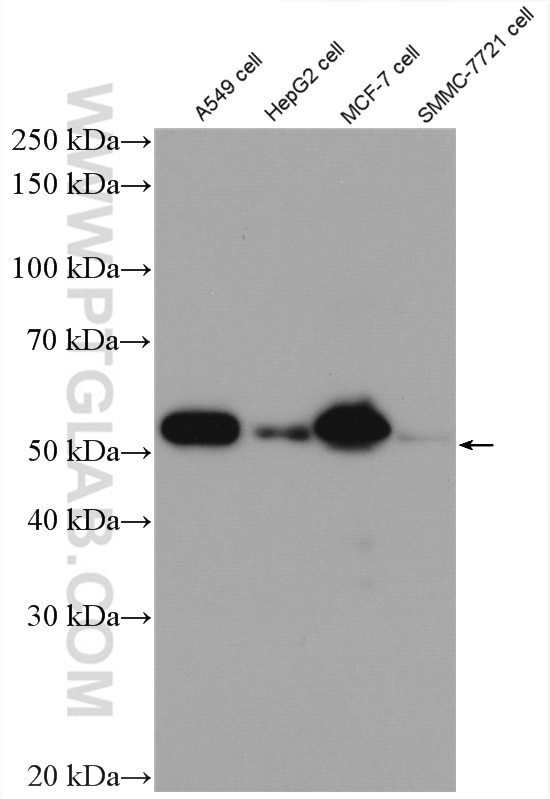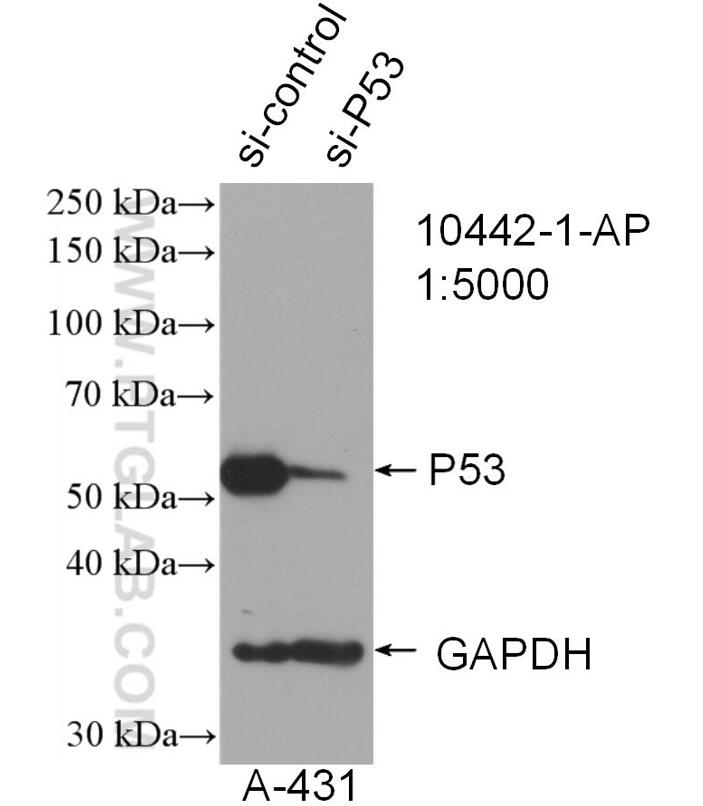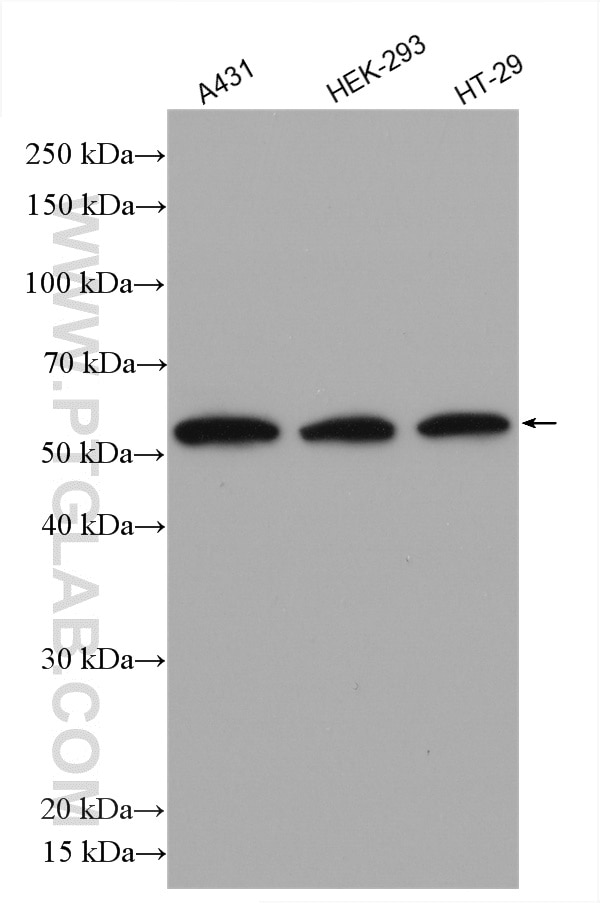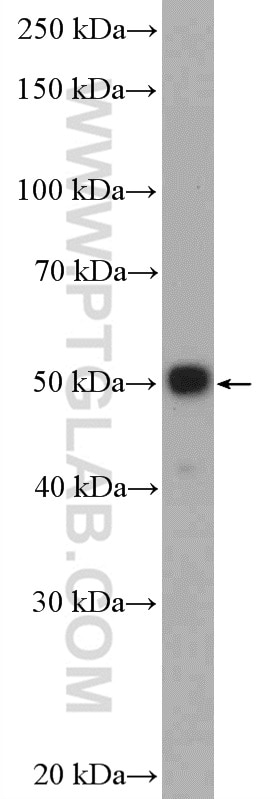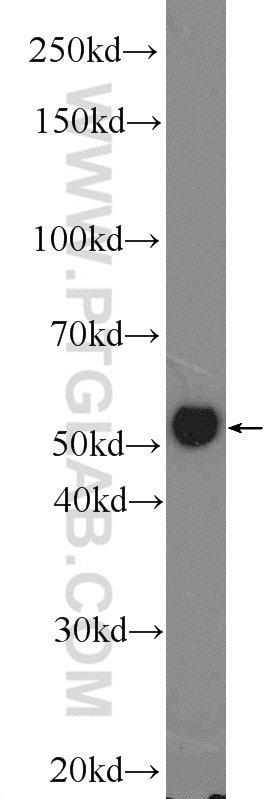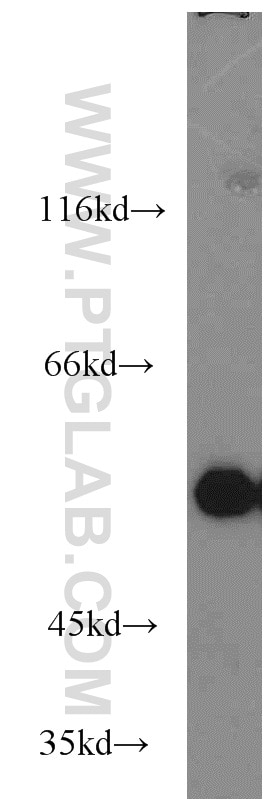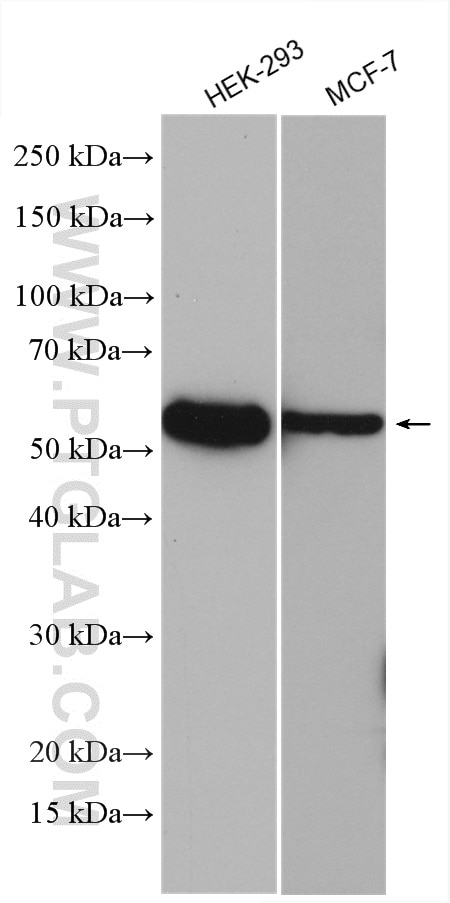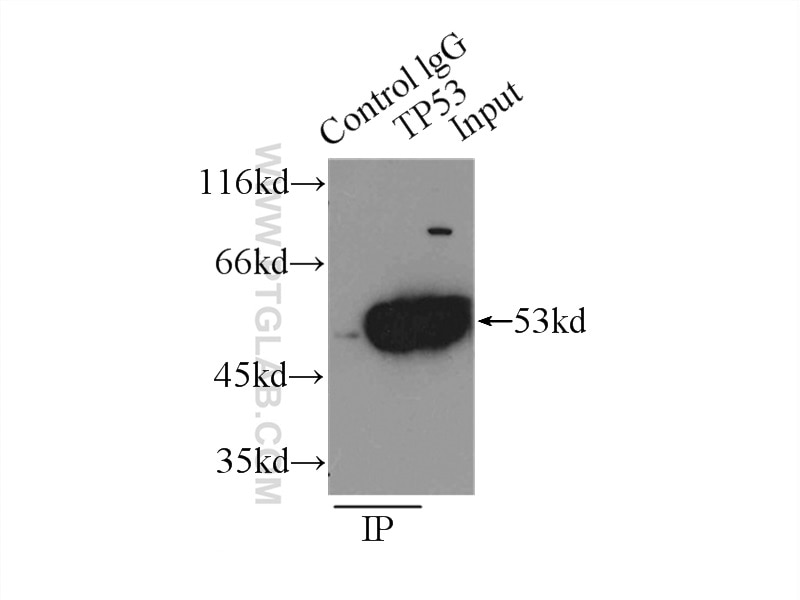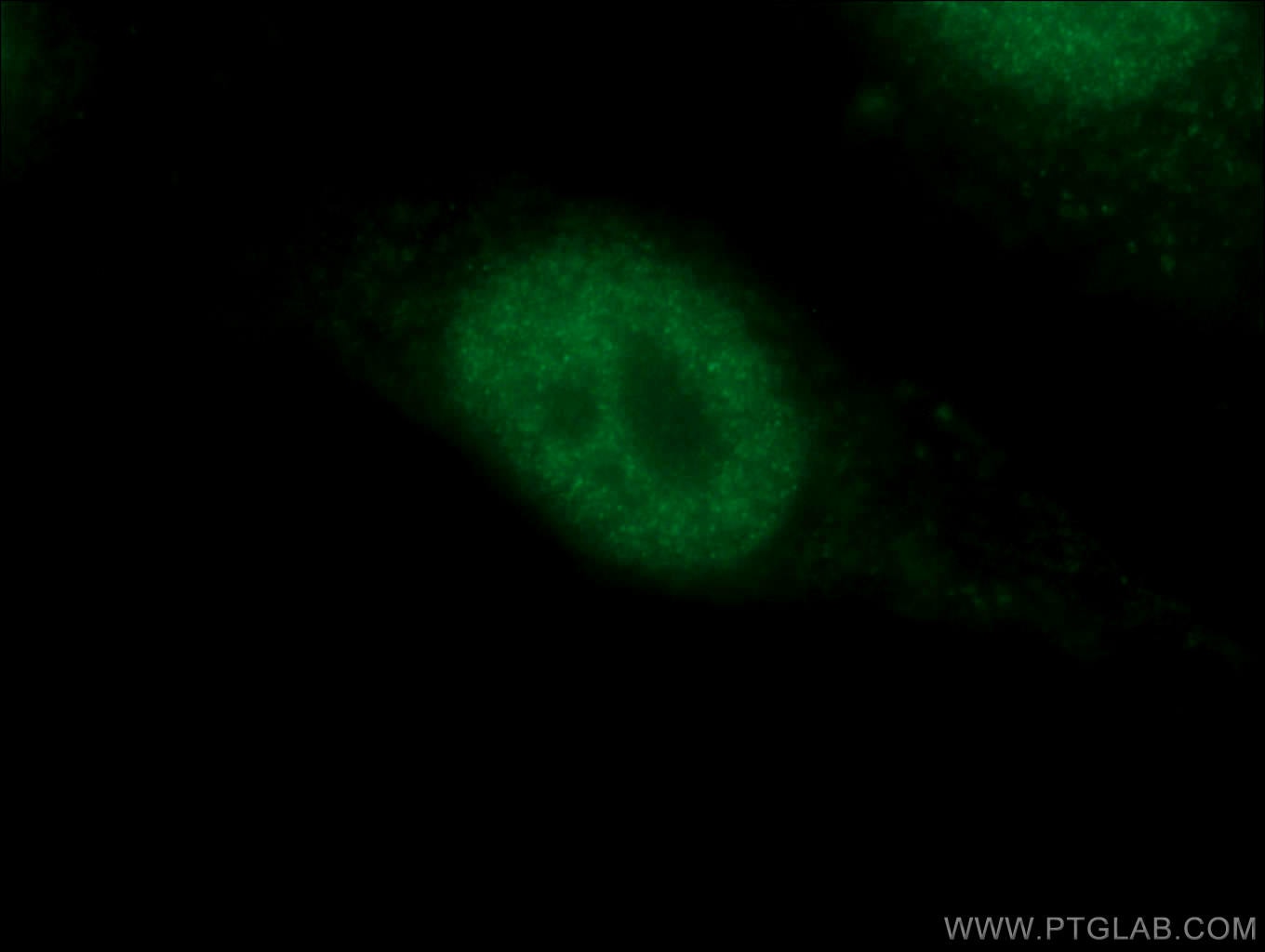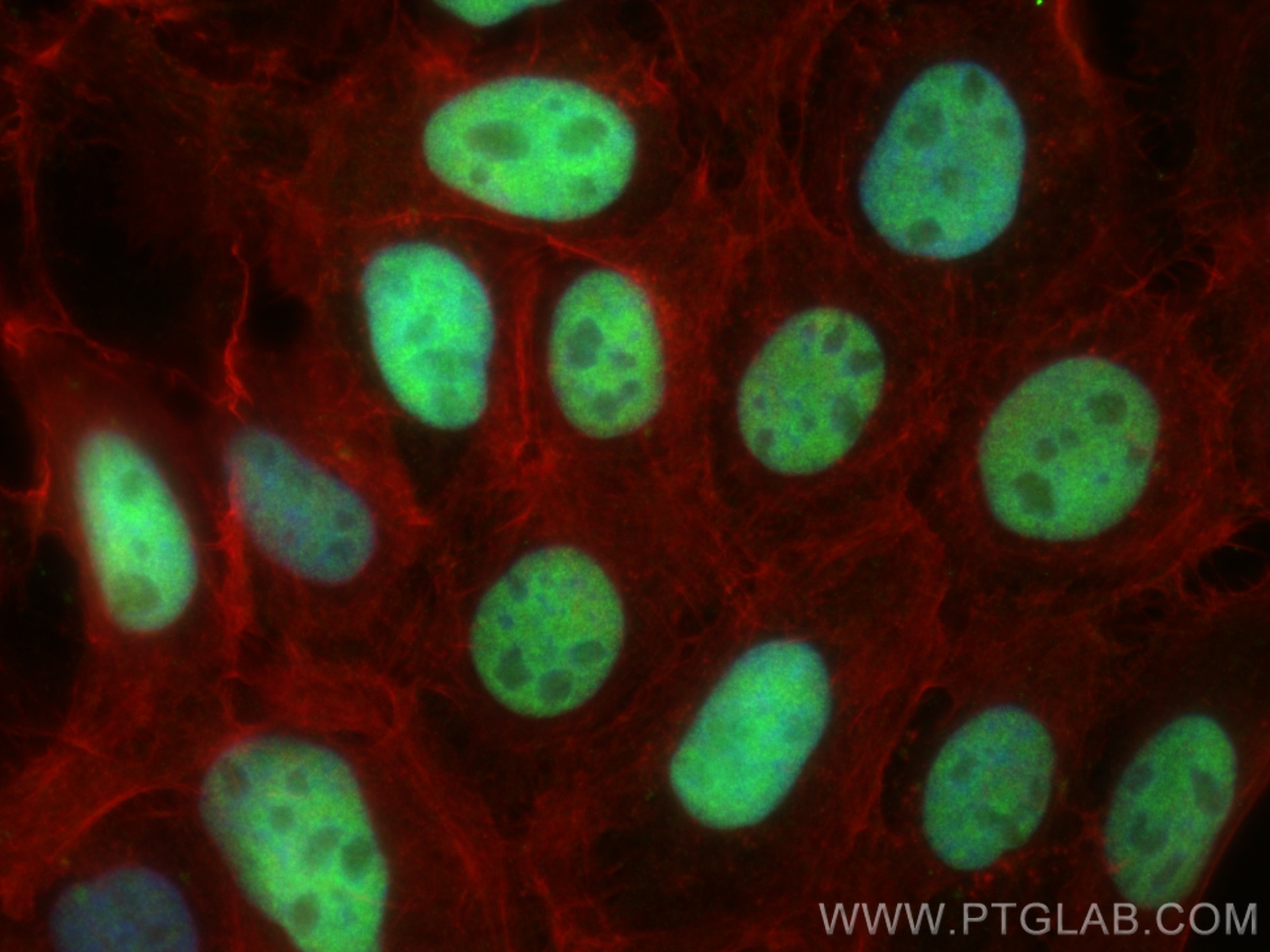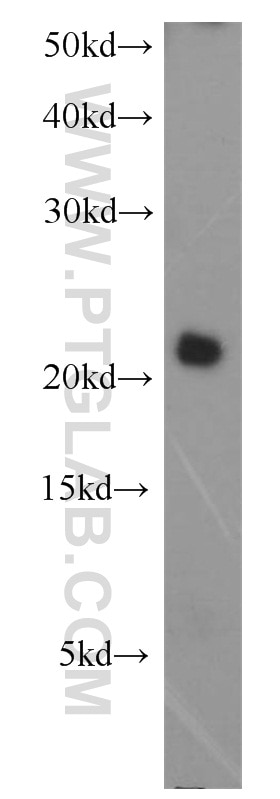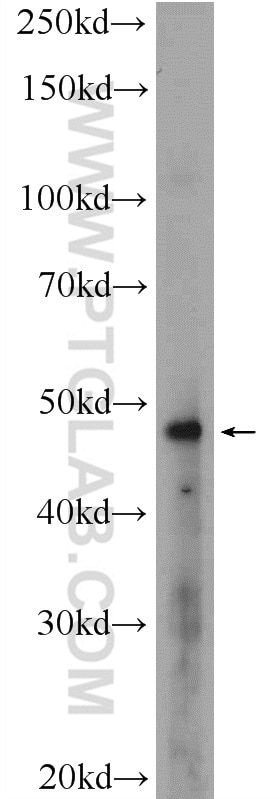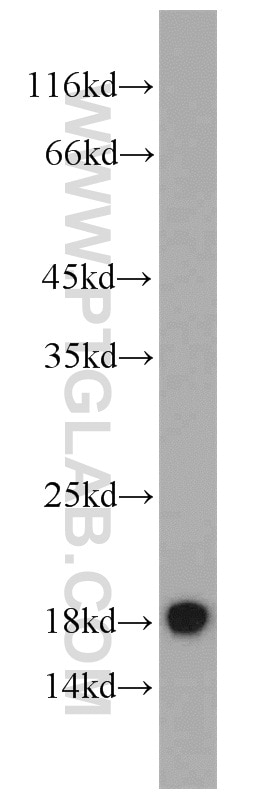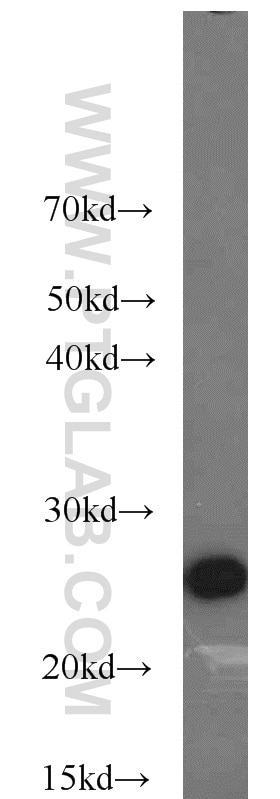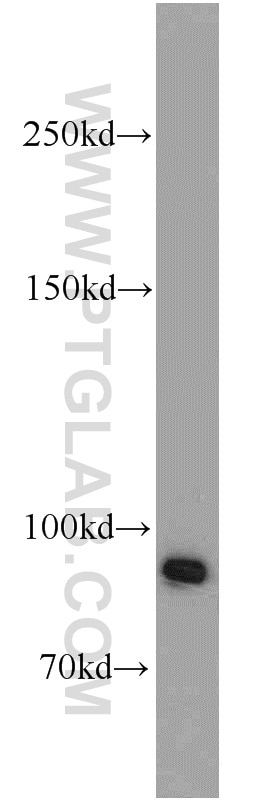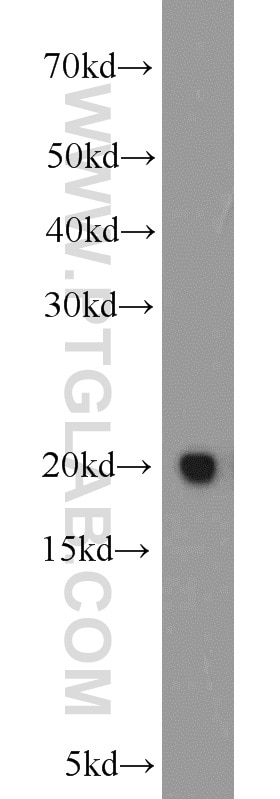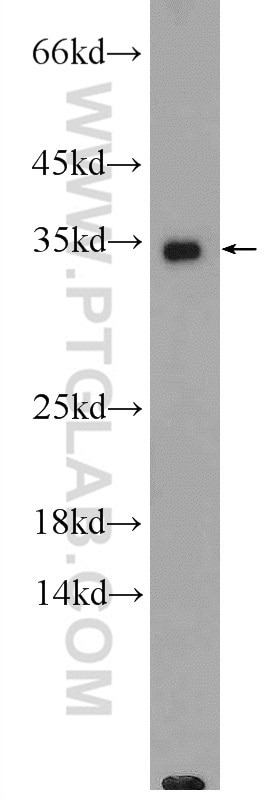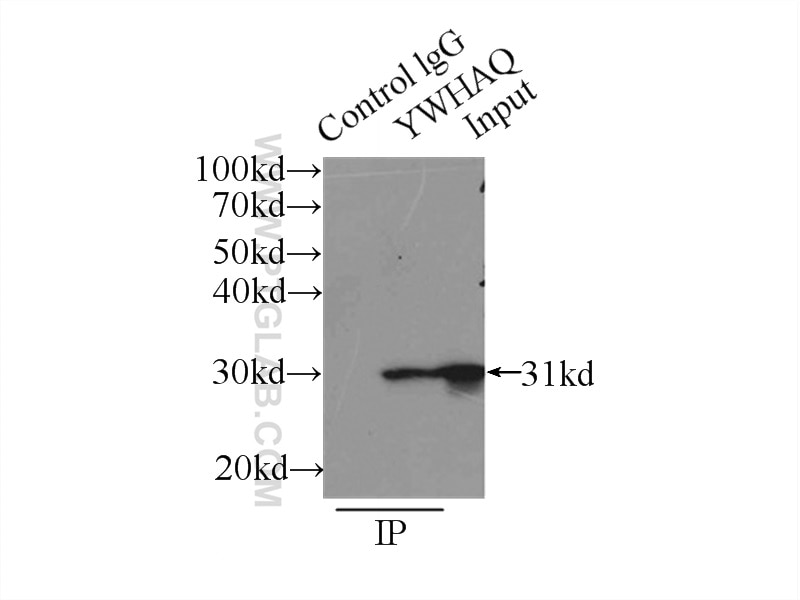- Featured Product
- KD/KO Validated
P53 Polyklonaler Antikörper
P53 Polyklonal Antikörper für WB, IF/ICC, IP, ELISA
Wirt / Isotyp
Kaninchen / IgG
Getestete Reaktivität
human, Ratte und mehr (4)
Anwendung
WB, IHC, IF/ICC, IP, CoIP, ChIP, RIP, ELISA
Konjugation
Unkonjugiert
Kat-Nr. : 10442-1-AP
Synonyme
Galerie der Validierungsdaten
Geprüfte Anwendungen
| Erfolgreiche Detektion in WB | A431-Zellen, HEK-293-Zellen, HepG2-Zellen, HT-29-Zellen, MCF-7-Zellen, Ratten-Kolongewebe, SMMC-7721-Zellen |
| Erfolgreiche IP | A431-Zellen |
| Erfolgreiche Detektion in IF/ICC | HepG2-Zellen, A431-Zellen |
Empfohlene Verdünnung
| Anwendung | Verdünnung |
|---|---|
| Western Blot (WB) | WB : 1:5000-1:50000 |
| Immunpräzipitation (IP) | IP : 0.5-4.0 ug for 1.0-3.0 mg of total protein lysate |
| Immunfluoreszenz (IF)/ICC | IF/ICC : 1:50-1:500 |
| It is recommended that this reagent should be titrated in each testing system to obtain optimal results. | |
| Sample-dependent, check data in validation data gallery | |
Veröffentlichte Anwendungen
Produktinformation
10442-1-AP bindet in WB, IHC, IF/ICC, IP, CoIP, ChIP, RIP, ELISA P53 und zeigt Reaktivität mit human, Ratten
| Getestete Reaktivität | human, Ratte |
| In Publikationen genannte Reaktivität | human, Hausschwein, Huhn, Ratte, Zebrafisch, Ziege |
| Wirt / Isotyp | Kaninchen / IgG |
| Klonalität | Polyklonal |
| Typ | Antikörper |
| Immunogen | P53 fusion protein Ag0698 |
| Vollständiger Name | tumor protein p53 |
| Berechnetes Molekulargewicht | 44 kDa |
| Beobachtetes Molekulargewicht | 53 kDa |
| GenBank-Zugangsnummer | BC003596 |
| Gene symbol | P53 |
| Gene ID (NCBI) | 7157 |
| Konjugation | Unkonjugiert |
| Form | Liquid |
| Reinigungsmethode | Antigen-Affinitätsreinigung |
| Lagerungspuffer | PBS mit 0.02% Natriumazid und 50% Glycerin pH 7.3. |
| Lagerungsbedingungen | Bei -20°C lagern. Nach dem Versand ein Jahr lang stabil Aliquotieren ist bei -20oC Lagerung nicht notwendig. 20ul Größen enthalten 0,1% BSA. |
Hintergrundinformationen
1. What is p53?
P53 is a tumor suppressor gene that plays a role in maintaining genomic stability and controlling apoptosis. During the cell cycle, it can arrest cells at the G1/S checkpoint and activate DNA repair mechanisms. It is the most mutated gene in cancer. In unstressed cells, p53 usually exists at low levels in an inactive form, being bound to Mdm2.
2. FAQs and p53
a. I fail to detect p53 by western blotting
Basal levels of wild-type p53 in untreated cells can be low. Try to load more cell lysate and use a positive control - a lysate of cells treated with DNA-damaging agents should increase p53 levels.
b. I fail to detect p53 in some cell lines by western blotting
Various p53 mutations are present in cancer cell types. If mutations cause truncations/deletions some monoclonal antibodies may no longer recognize mutated p53. You have more chances of detecting various p53 mutants with our polyclonal antibody.
c. I can detect more than one band ~50 kDa size / different cell lines give bands at slightly different size
p53 is a subject of post-translational modifications (http://p53.free.fr/p53_info/p53_modifications.html) and more than one isoform may be expressed (http://p53.free.fr/p53_info/p53_isoforms.html). Also, it is possible that your cell line of interest expresses one allele with mutated p53 with altered molecular weight.
Protokolle
| Produktspezifische Protokolle | |
|---|---|
| WB protocol for P53 antibody 10442-1-AP | Protokoll herunterladen |
| IF protocol for P53 antibody 10442-1-AP | Protokoll herunterladen |
| IP protocol for P53 antibody 10442-1-AP | Protokoll herunterladen |
| Standard-Protokolle | |
|---|---|
| Klicken Sie hier, um unsere Standardprotokolle anzuzeigen |
Publikationen
| Species | Application | Title |
|---|---|---|
ACS Nano Mesenchymal Stem Cell-Derived Extracellular Vesicles Attenuate Mitochondrial Damage and Inflammation by Stabilizing Mitochondrial DNA. | ||
Nat Commun URI alleviates tyrosine kinase inhibitors-induced ferroptosis by reprogramming lipid metabolism in p53 wild-type liver cancers | ||
Sci Transl Med PTEN status determines chemosensitivity to proteasome inhibition in cholangiocarcinoma. | ||
Cell Res DNA damage triggers tubular endoplasmic reticulum extension to promote apoptosis by facilitating ER-mitochondria signaling. | ||
J Am Chem Soc Acetylation Targeting Chimera Enables Acetylation of the Tumor Suppressor p53 |
Rezensionen
The reviews below have been submitted by verified Proteintech customers who received an incentive for providing their feedback.
FH Laetitia (Verified Customer) (03-21-2024) | Finding antibodies specific to avian proteins is very difficult. I have tried different antibodies from different companies so far. This antibody is by far the best (cost efficient as well)
|
FH Macarena Lucia (Verified Customer) (10-17-2022) | clear band on human lysates
|
FH Kimberly (Verified Customer) (04-08-2022) | TRIS antigen retrieval
|
FH Ryan (Verified Customer) (08-27-2021) | Worked well in HeLa cells and provided a nice clear band.
|
FH Fan (Verified Customer) (03-22-2021) | Mouse retinal tissue was used. Single band at the right size was detected. Good antibody.
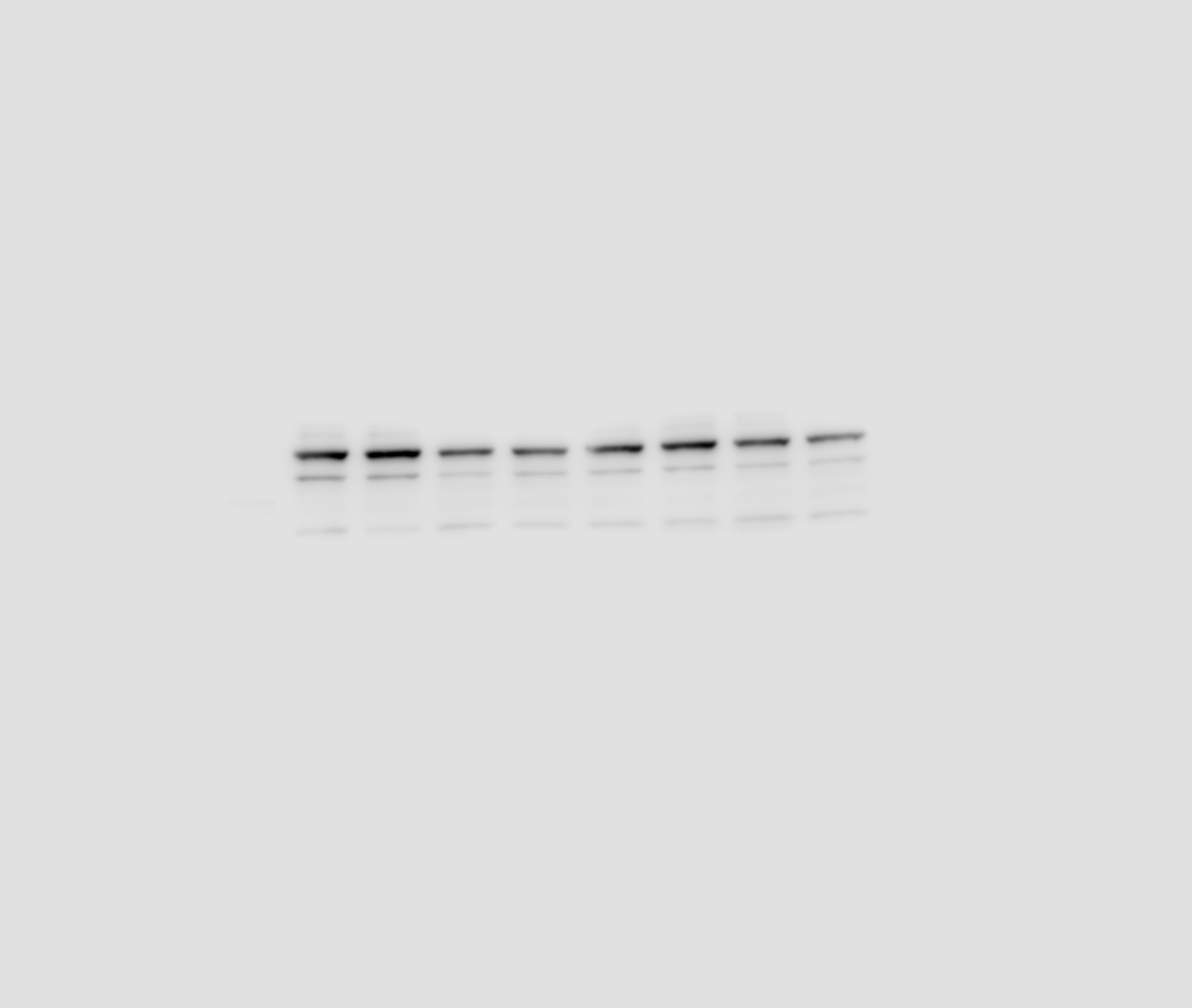 |
FH WEI (Verified Customer) (01-17-2020) | Weak band in heart lysates
|
FH Ben (Verified Customer) (09-26-2019) | It worked very well for our westerns.
|
FH Sid (Verified Customer) (04-12-2019) | Product performed well in western for human samples, moderate background/non specific binding
|
FH Josiah (Verified Customer) (02-27-2019) | Antibody performed superb in a Western Blot application. Used Licor IR secondary antibodies to label the p53 antibody along with ß-actin as a duplex assay and imaged on a Licor Odyssey FC.
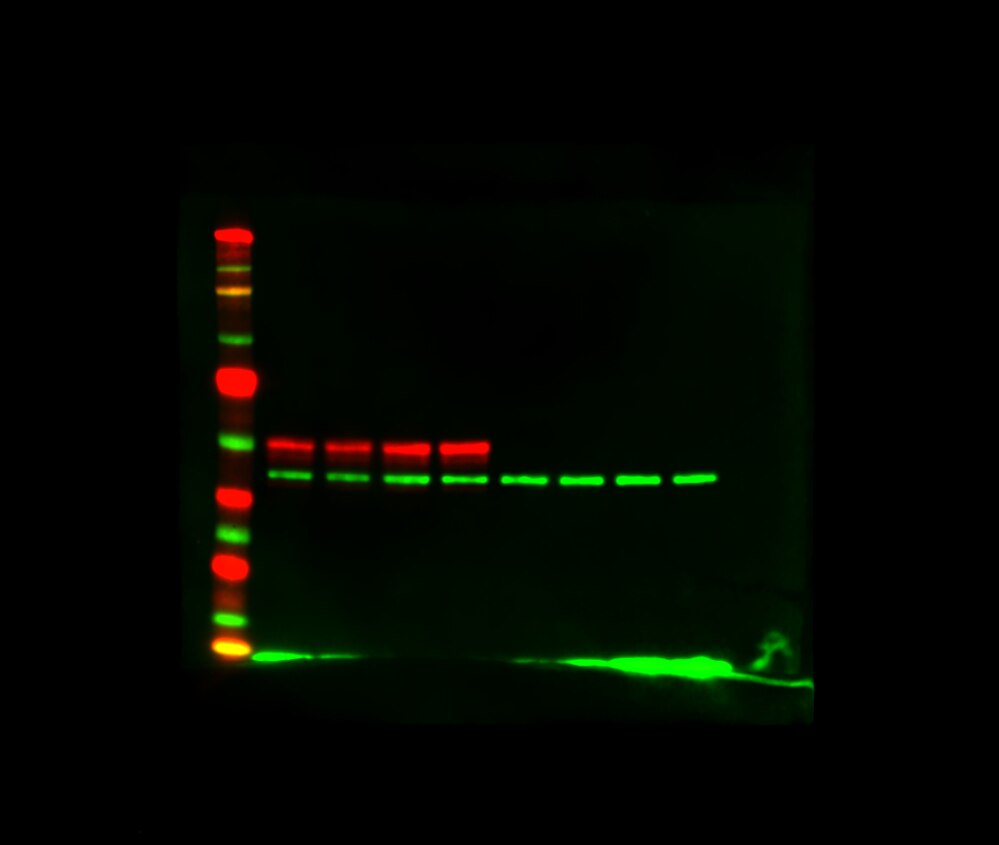 |
